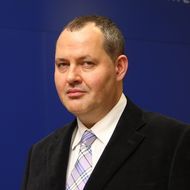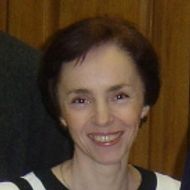- A
- A
- A
- ABC
- ABC
- ABC
- А
- А
- А
- А
- А
- HSE University
- Faculties
- Faculty of Economic Sciences
- News
- FES International Research Seminar with Dennis Novy, Warwick University, UK
-
Departments
- Departments
-
Institutes and Centres
-
- Institute of Economics and Utility Regulation
- Institute for Industrial and Market Studies
- Centre for Labour Market Studies
- International Centre of Decision Choice and Analysis
- Centre of Development Institute
- Centre for Financial Research & Data Analytics
- Economic Statistics Centre of Excellence
- Anti-Corruption Centre
-
-
Laboratories
-
- International Laboratory for Macroeconomic Analysis
- International Laboratory of Stochastic Analysis and its Applications
- International Laboratory for Experimental and Behavioural Economics
- Corporate Finance Center
- Laboratory for Banking Studies
- Laboratory for Labour Market Studies
- Laboratory for Sport Studies
- Laboratory for Wealth Measurement
- Project Laboratory for Development of Intellectual Competitions in Economics
- Laboratory for Spatial Econometric Modeling of Socio-Economic Processes in Russia
- Laboratory for Geometric Algebra and Applications
-
- Department of Financial Market Infrastructure
- ICEF
-
Educational Programmes
- Bachelor's Programmes
-
Master's Programmes
-
- Economics and Economic Policy
- Agrarian Economics
- Stochastic Modeling in Economics and Finance (Previously, Master's in Statistical Modelling and Actuarial Science)
- Statistical Analysis in Economics
- Economic Analysis (Online)
- Strategic Corporate Finance
- Financial Markets and Institutions
- Corporate Finance
- Financial Engineering
- Master of Business Analytics (Online)
- Investments in Financial Markets (Online)
-
- Doctoral Programmes
-
Faculty
109028, Moscow,
11 Pokrovsky Boulevard,
Room Т-614
Phone: (495) 628-83-68
email: fes@hse.ru
Founded in 1992, the HSE Faculty of Economics is the university’s oldest faculty. In the years since it was founded, it has gained a reputation as Russia’s leader in terms of higher economic education.
A fundamental education in modern economic theory and mathematics is combined with the study of applied disciplines, such as taxation, budget policies and processes, financial management and other related fields.
Besstremyannaya G., Dasher R., Golovan S.
HSE Economic Journal. 2025. Vol. 29. No. 1. P. 72-102.
In bk.: Advances in Computer Graphics: 41st Computer Graphics International Conference, CGI 2024, Geneva, Switzerland, July 1–5, 2024, Proceedings, Part III. Vol. 15340. Springer, 2025. P. 336-348.
Lyakhovich S., Piontkovski D.
arxiv.org. Physics. Cornell University, 2025
109028, Moscow,
11 Pokrovsky Boulevard,
Room Т-614
Phone: (495) 628-83-68
email: fes@hse.ru

FES International Research Seminar with Dennis Novy, Warwick University, UK
Dennis Novy is an Associate Professor of Economics at the University of Warwick and a Research Fellow at the Centre for Economic Policy Research (CEPR). He is also an Associate at the Centre for Economic Performance (CEP) at the London School of Economics. He was appointed to the UK Council of Economic Advisers by the Chancellor of the Exchequer in 2018.
His main research interests are international trade, international economics and macroeconomics.
At the FES International Research Seminar Dr.Novy presented his research "Vehicle Currency Pricing and Exchange Rate Pass-Through"
Abstract: Using detailed firm-level transactions data for UK imports, we find that invoicing in a vehicle currency is pervasive, with more than half of transactions in our sample invoiced in neither sterling nor the exporter’s currency. We then study the relationship between invoicing currency choices and the response of import prices to exchange rate changes. We find that for transactions invoiced in a vehicle currency, import prices are much more sensitive to changes in the vehicle currency than in the bilateral exchange rate. Pass-through therefore substantially increases once we account for vehicle currencies. Our results help to explain the higher-than-expected pass-through into import prices during the Great Recession and after the EU referendum. Finally, within a theoretical framework we conceptualize an omitted variable bias arising in estimating pass-through with only bilateral exchange rates under vehicle currency pricing. Overall, our results contribute to understanding the disconnect between exchange rates and prices.
The FES International Research Seminar organisers are: Eren Arbatli (Ph.D, Assistant Professor of Department of Theoretical economics FES HSE) and Madina Karamysheva (Ph.D, Assistant Professor of the School of Finance FES HSE)
- About
- About
- Key Figures & Facts
- Sustainability at HSE University
- Faculties & Departments
- International Partnerships
- Faculty & Staff
- HSE Buildings
- Public Enquiries
- Studies
- Admissions
- Programme Catalogue
- Undergraduate
- Graduate
- Exchange Programmes
- Summer Schools
- Semester in Moscow
- Business Internship
-
https://elearning.hse.ru/en/mooc/
Massive Open Online Courses
-
https://www.hse.ru/en/visual/
HSE Site for the Visually Impaired
-
http://5top100.com/
Russian Academic Excellence Project 5-100
- © HSE University 1993–2025 Contacts Copyright Privacy Policy Site Map
- Edit





